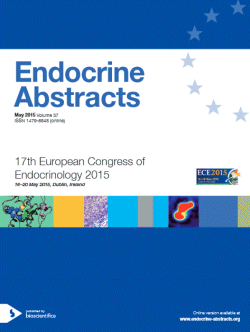Searchable abstracts of presentations at key conferences in endocrinology
Endocrine Nursing
Professional development, poster presentations and networking
ea0037en2.1 | Professional development, poster presentations and networking
Abstract unavailable
ea0037en2.5 | Professional development, poster presentations and networking
Abstract unavailable
ea0037en2.6 | Professional development, poster presentations and networking




